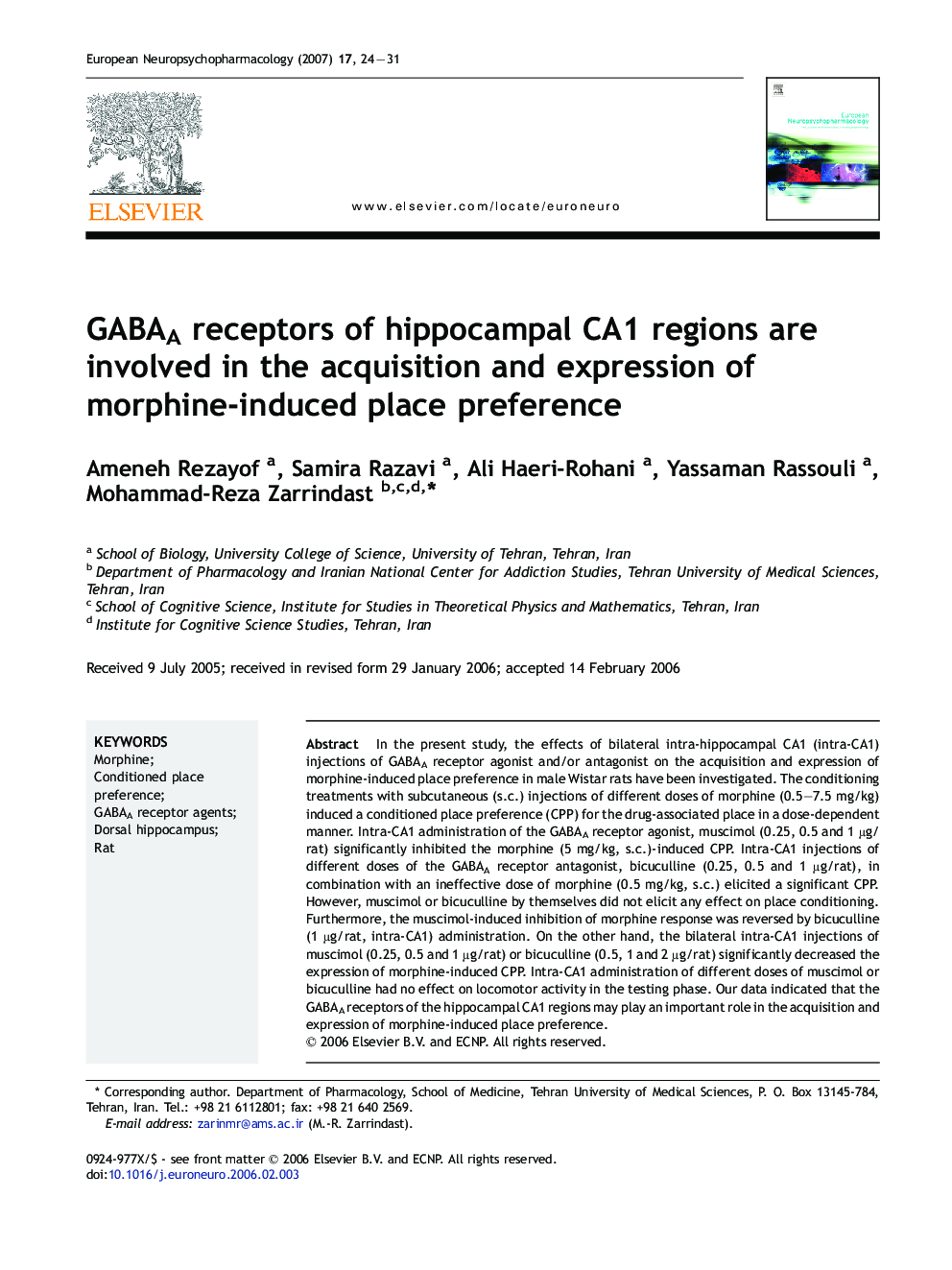| Article ID | Journal | Published Year | Pages | File Type |
|---|---|---|---|---|
| 322183 | European Neuropsychopharmacology | 2007 | 8 Pages |
In the present study, the effects of bilateral intra-hippocampal CA1 (intra-CA1) injections of GABAA receptor agonist and/or antagonist on the acquisition and expression of morphine-induced place preference in male Wistar rats have been investigated. The conditioning treatments with subcutaneous (s.c.) injections of different doses of morphine (0.5–7.5 mg/kg) induced a conditioned place preference (CPP) for the drug-associated place in a dose-dependent manner. Intra-CA1 administration of the GABAA receptor agonist, muscimol (0.25, 0.5 and 1 μg/rat) significantly inhibited the morphine (5 mg/kg, s.c.)-induced CPP. Intra-CA1 injections of different doses of the GABAA receptor antagonist, bicuculline (0.25, 0.5 and 1 μg/rat), in combination with an ineffective dose of morphine (0.5 mg/kg, s.c.) elicited a significant CPP. However, muscimol or bicuculline by themselves did not elicit any effect on place conditioning. Furthermore, the muscimol-induced inhibition of morphine response was reversed by bicuculline (1 μg/rat, intra-CA1) administration. On the other hand, the bilateral intra-CA1 injections of muscimol (0.25, 0.5 and 1 μg/rat) or bicuculline (0.5, 1 and 2 μg/rat) significantly decreased the expression of morphine-induced CPP. Intra-CA1 administration of different doses of muscimol or bicuculline had no effect on locomotor activity in the testing phase. Our data indicated that the GABAA receptors of the hippocampal CA1 regions may play an important role in the acquisition and expression of morphine-induced place preference.
